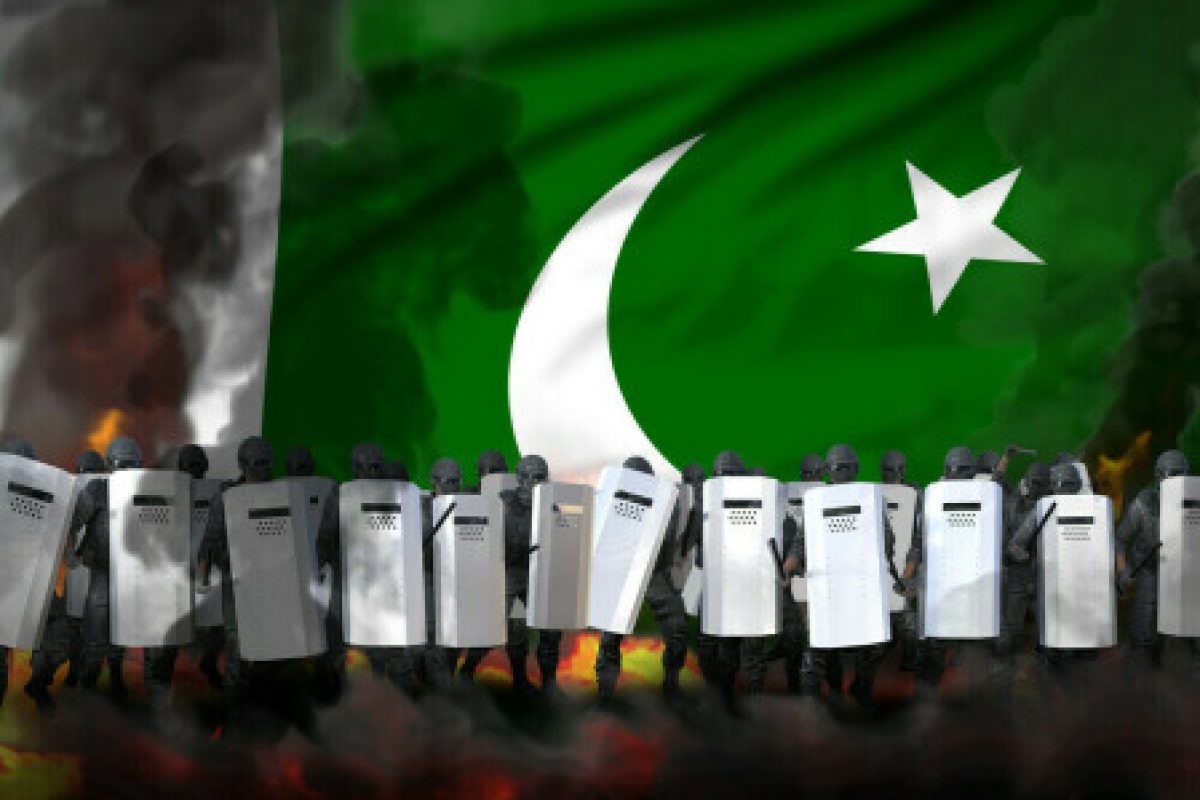
SECURITY refers to protection from any form of threat, whether external or internal. In the modern world, terrorism and proxy wars have diversified the concept of security. Today, comprehensive security encompasses not only sovereignty, territorial integrity, specific political orders, state institutions, social and economic freedoms, justice and equality, but also a variety of other factors. States have increasingly focused not only on traditional military threats but have also incorporated non-traditional threats such as poverty, trade, the economy, human rights and environmental concerns into their security agendas. Pakistan’s situation is no different. Traditional security refers to the sense within a society that its state has the capability to protect individual and collective rights. However, non-traditional security is equally important when it comes to addressing new challenges and creating conducive conditions for future development. When reviewing the concepts of traditional and non-traditional security, it is crucial to understand their differences, characteristics, and relevance in the current era.
The objective of traditional security is to provide protection from external threats and attacks. Key elements include territorial integrity, military power, external threats, global alliances and treaties, economic stability, strategic resources, intelligence, countering aggression, and international relations. This type of security often emphasizes the use of force and defensive strategies. Key examples include India’s nuclear tests in 1974, the Balochistan movement in 1979, India’s nuclear threats in 1986, global sanctions on Pakistan in 1989, India’s nuclear weapons tests in 1998, the presence of NATO and U.S. forces in Afghanistan from 2001 to 2021, tensions with India in 2002, India’s use of force against Pakistan in 2019, Pakistan’s counterattacks, and threats of terrorism, as well as strategic rivalries involving China and the U.S., the Russia-Ukraine war, the Gaza genocide, and fears of war spreading in the Middle East. Incidents such as India’s provocations in occupied Jammu and Kashmir, especially after the revocation of Article 370 in August 2019, have further cemented Pakistan’s military priorities along its eastern border. The China-Pakistan Economic Corridor (CPEC) has incorporated economic security into Pakistan’s traditional security framework, necessitating the protection of critical infrastructure and trade routes. Pakistan is striving to modernize its army, navy, and air force, with an emphasis on defence production and strategic deterrence.
The concept of traditional security is evolving globally, as today’s security challenges—such as terrorism, cyber-attacks, environmental threats, and economic instability—pose more direct risks to the existence of states. Hence, alongside traditional security, the importance of non-traditional security is now being recognized. Non-traditional security addresses challenges that may not be directly related to interstate war but could pose significant threats to both states and societies. Global issues such as climate change, pandemics, human trafficking, drug trade, and cyber-attacks are increasing the importance of non-traditional security. However, traditional and non-traditional security is interconnected. Together, they create a holistic security framework.
Non-traditional security threats have existed in various forms throughout history. From the Romans salting the fields of Carthage, to the imposition of foreign curricula on indigenous populations, the Opium Wars, modern-day sanctions, restrictions on technology sharing, and forcing states into economic isolation—these are just a few examples. Non-traditional security is present in every aspect of society, including policy, operational structures, economics, finance, food security, cyber threats, artificial intelligence, legal status, justice, information, societal psychology, population dynamics, international influence, international relations, maritime and air space, scientific development, climate, water resources, health, politics, and civil defense. It is clear that strengthening these dimensions will equip a country with both domestic and international capabilities, providing it with numerous options for implementing its strategic objectives.
Traditional security remains inactive or dormant until a major event occurs, such as war, global conflict, or the use of violence. In contrast, non-traditional security remains active at all times. Pakistan faces both traditional and non-traditional security threats. The most significant traditional security threat comes from India. By introducing concepts such as limited war and the Cold Start doctrine, India keeps its threats toward Pakistan constantly active. Non-traditional security threats to Pakistan include a weak economy, rapid population growth, lack of education, scarcity of clean water, food insecurity, and environmental degradation. When assessing Pakistan’s security situation, both traditional and non-traditional aspects must be considered. Traditional security has been the cornerstone of national defence since the inception of Pakistan. The Kashmir conflict, border tensions, and the China-India dispute have remained major issues for Pakistan’s traditional security. The wars of 1947, 1965, 1971, and 1999 exemplify traditional military threats. To bolster its defence, Pakistan acquired nuclear capabilities, aiming to establish a balance of power. A significant portion of Pakistan’s budget is allocated to defence to maintain military strength. Relations with Afghanistan and the impact of the Afghan war also fall within the realm of traditional security.
 Pakistan’s relations with China and the growing influence of the U.S. and India in the region, along with the resurgence of terrorism, floods, and economic difficulties, highlight the intensity of traditional security threats. Since 2001, terrorism and extremism have become Pakistan’s largest non-traditional security challenge. Operations like Zarb-e-Azb and Radd-ul-Fasaad have been conducted to eradicate terrorism. Pakistan remains one of the most affected countries in the world by terrorism, which has challenged its sovereignty, territorial integrity, and survival. The war on terror has resulted in over 80,000 casualties and an economic loss of more than $200 billion. Therefore, a national strategy must be developed to address emerging global challenges and secure both traditional and non-traditional security domains, including cyber warfare. Undoubtedly, the Pakistan Armed Forces have successfully defended regional integrity and sovereignty over time, and they remain steadfast in their determination to make any necessary sacrifices in the future. The Chief of Army Staff, General Asim Munir, has sent a clear message to the enemies that whether in traditional or non-traditional warfare, Pakistan’s response will be swift and painful, ensuring a deep and lasting retaliation.
Pakistan’s relations with China and the growing influence of the U.S. and India in the region, along with the resurgence of terrorism, floods, and economic difficulties, highlight the intensity of traditional security threats. Since 2001, terrorism and extremism have become Pakistan’s largest non-traditional security challenge. Operations like Zarb-e-Azb and Radd-ul-Fasaad have been conducted to eradicate terrorism. Pakistan remains one of the most affected countries in the world by terrorism, which has challenged its sovereignty, territorial integrity, and survival. The war on terror has resulted in over 80,000 casualties and an economic loss of more than $200 billion. Therefore, a national strategy must be developed to address emerging global challenges and secure both traditional and non-traditional security domains, including cyber warfare. Undoubtedly, the Pakistan Armed Forces have successfully defended regional integrity and sovereignty over time, and they remain steadfast in their determination to make any necessary sacrifices in the future. The Chief of Army Staff, General Asim Munir, has sent a clear message to the enemies that whether in traditional or non-traditional warfare, Pakistan’s response will be swift and painful, ensuring a deep and lasting retaliation.
—The writer is Chairman, Tehrik Jawanan Pakistan.


